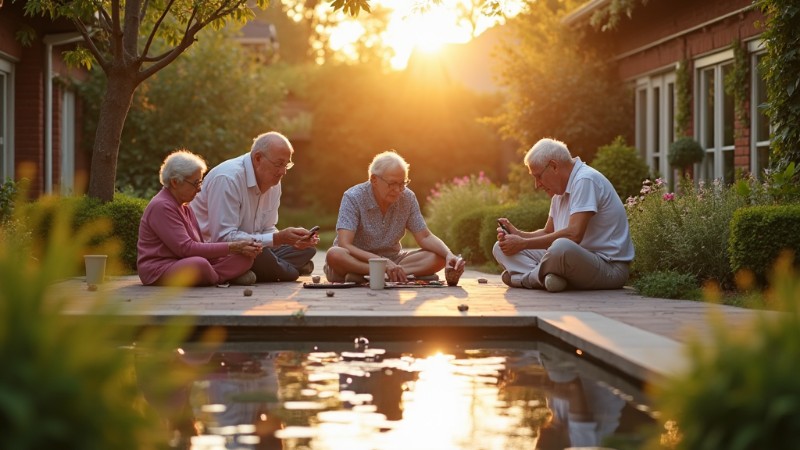Managing aggression among senior residents, particularly those with dementia or Alzheimer’s, is a challenge that requires thoughtful approaches prioritizing their well-being and safety. Aggression in elderly care settings can arise in various forms, such as verbal or physical outbursts, and caregivers need to have effective strategies in place.
Understanding Aggression in Seniors
A 2016 survey highlighted the prevalence of aggressive behavior, with one in five local residents reporting hostile interactions within a month. This underscores the need for proactive solutions in long-term care facilities, where maintaining a peaceful environment is vital. Among these solutions, music therapy stands out as a powerful tool to improve emotional and mental health.
Causes of senior aggression
Several factors contribute to aggression in older adults. These can range from health issues to environmental stressors, each requiring careful consideration to manage effectively. Below are some common causes of aggression in seniors:
Sleep problems: As we age, sleep patterns often change, leading to insomnia or disrupted sleep. Sleep deprivation can result in irritability, frustration, and a reduced ability to manage emotions.
Chronic pain: Seniors suffering from chronic pain may struggle to maintain a positive outlook. When physical discomfort is constant, it may lead to emotional exhaustion and increased sensitivity to stress.
Alzheimer’s and dementia: Neurological conditions, such as Alzheimer’s and dementia, often lead to confusion, anxiety, and frustration. These feelings can trigger aggression, especially when communication becomes difficult.
Urinary Tract Infections (UTIs): UTIs, surprisingly common in older adults, can cause significant behavioral changes, including aggression and confusion, particularly if the infection goes undiagnosed.
Understanding these triggers helps caregivers and family members address the root causes of aggression and adopt a more compassionate approach when responding to outbursts.
Key strategies for managing aggression
Caring for seniors who exhibit aggressive behavior requires patience, skill, and an understanding of their emotional and physical needs. Several approaches can help prevent and manage aggressive episodes.
Staff training and caregiver support
Specialized caregiver training is key to managing senior aggression. Programs like those from the Cornell Institute for Translational Research on Aging teach de-escalation, non-verbal communication, and strategies for handling dementia-related aggression, helping reduce the frequency and intensity of aggressive episodes.
Non-verbal communication and validation: When responding to aggression, body language can often be more effective than words. Simple actions, such as maintaining eye contact or offering a gentle touch, can help to soothe agitated seniors. Validating their feelings without lingering too long on the trigger helps redirect their focus.
Routine and environmental adjustments: Consistency and routine play an essential role in reducing agitation in seniors. Establishing a predictable daily schedule helps reduce anxiety and gives the elderly a sense of control over their environment. Additionally, minimizing environmental stressors—like noise, clutter, or harsh lighting—can create a calm atmosphere, making it easier for seniors to feel at ease.
The role of music therapy in reducing aggression
Music therapy is a growing tool for improving emotional well-being in older adults, especially those with cognitive impairments. Studies show that music boosts dopamine levels, lifting mood and fostering comfort. For seniors with dementia or Alzheimer’s, it can trigger positive memories and ease anxiety.
Group music activities: Engaging in music-based social activities fosters a sense of community and helps seniors feel more connected to those around them. These activities not only improve mood but also promote better social interaction and can ease loneliness, a common contributor to aggressive behavior in the elderly.
Music for physical health: Music therapy benefits physical health too. Music-based exercise programs motivate seniors to engage in activities that improve motor skills and balance. Incorporating music into daily routines keeps seniors both physically and mentally active, helping to reduce aggression.
Managing senior aggression effectively requires addressing both emotional and physical needs. Combining caregiver training with music therapy provides a comprehensive solution to prevent and manage aggressive behavior.
Caregivers can incorporate music therapy into daily routines while using de-escalation techniques and personalized care. This approach improves seniors’ quality of life and fosters a more peaceful environment. Understanding the causes of aggression and applying strategies like music therapy and caregiver support can create a safer, more nurturing space for seniors, enhancing their well-being.















